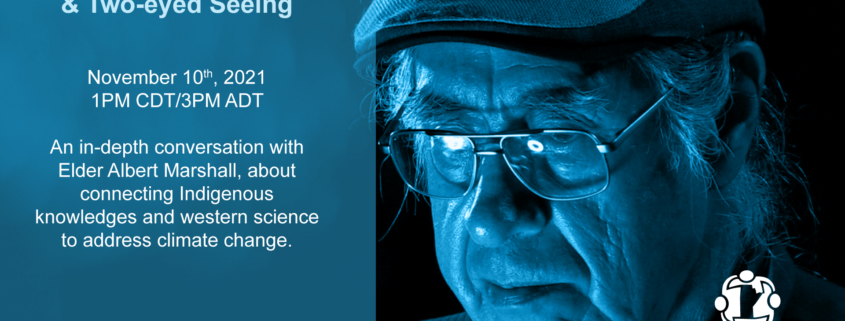
Information from Prairie Climate Centre:
Featuring an in-depth conversation with Mi’kmaw Elder Albert Marshall – from Eskasoni First Nation in Unama’ki (Cape Breton) – this event will reflect on the importance of Indigenous knowledges in addressing climate change. Elder Marshall is a passionate advocate for cross-cultural understanding, linking Indigenous and Western ways of knowing, and coined the influential term “Two-eyed seeing.”
Detailed description:
About this event
This webinar is organized by the Prairie Climate Centre at the University of Winnipeg.
Featuring an in-depth conversation with Mi’kmaw Elder Albert Marshall – from Eskasoni First Nation in Unama’ki (Cape Breton) – this event will reflect on the importance of Indigenous knowledges in addressing climate change. Elder Marshall is a passionate advocate for cross-cultural understanding, linking Indigenous and Western ways of knowing, and coined the influential term “Two-eyed seeing.” Marshall defines Two-eyed seeing as “learning to see from one eye with the strengths of Indigenous knowledges and ways of knowing, and from the other eye with the strengths of mainstream knowledges and ways of knowing, and to use both these eyes together, for the benefit of all.” Given the climate and environmental crises, Elder Marshall will share his guidance on how respectful collaboration can help to create a new narrative that truly supports planetary health and well-being.
Please join us for this first event in an ongoing series about Indigenous knowledge, climate change, and resilience.
This training event is part of a larger series of events, delivered in collaboration with the Manitoba Climate Resilience Training (MCRT).
To learn more or register, visit event page.
(Image/Poster Source: Prairie Climate Centre)



 ArcticNet, 2021
ArcticNet, 2021